Retired Winslow High School teacher Mary O’Donnell has never seen such a dry year in her small market garden on Route 23 in Canaan.
O’Donnell says she grows everything, and this year she has to water everything, spending six hours a day watering her crops with a sprinkler.
“I can compare it to any other year and I’ve never done this much watering — ever,” O’Donnell said of her 1-acre Valley Garden Produce farm and farm stand. “I spend six hours a day watering, and we have since the first of June. It hasn’t gone away.”
In the areas of western New York, Massachusetts and southern parts of New Hampshire and Maine, it’s been drier than in a decade or more. National weather experts predict the drought will persist at least through the end of October.
But in central Maine it depends where you are when the heavy thunderstorms tear through the region. Rainfall in some places is close to normal, according to the National Weather Service, while others are 6 inches or more below normal.
Some farmers in drought-stricken areas are abandoning crops altogether. But not O’Donnell.
“We use a sprinkler on top of a ladder and we move it every hour and a half,” she said. “Normally we don’t water outside of our greenhouses. Usually we only water inside. That’s the normal routine. But this year with no rain we have to water everything.”
Central Maine is experiencing a moderate drought, said Tom Hawley, of the National Weather Service forecast office in Gray. A lot of farmers are worried about their squash and their berries, he said, but those that have irrigation seem to be much better off.
According to Alicyn Smart, executive director of the Maine Farm Bureau, many of its members are seeing an impact from the hot weather and low precipitation.
Besides concerns about the summer hay crops, which could force farmers to buy hay and upset their budgets, there’s the issue of insects. The hot weather increases the insect populations, especially “piercing and sucking” insects that can harm crops, Smart said.
Most farmers are increasing their irrigation to offset the drought effects, she said. The best way for a farmer to protect against the impact of a drought, according to Smart, is just to try to have a variety of produce or livestock.
“If you have a diverse farm, they might not feel the impact so much,” she said.
Andy Pohl, a meteorologist at the NWS office in Gray, said Maine and New Hampshire in general are under a drought alert this summer with a special drought statement issued on Monday.
Pohl said some locations in Maine and New Hampshire are suffering more than others because of the paths of recent heavy rainstorms. Some locations in New Hampshire are 10 inches below normal in rainfall this season, while southern and southwestern Maine locations are 6-8 inches below normal.
Waterville is listed on the drought statement as being 6.24 inches below normal precipitation with New Sharon in Franklin County showing 5.49 inches below normal rainfall. There is no rainfall data for Somerset County locations.
“It has been dry, but there are places that are near normal just because they have been underneath some of those very heavy thunderstorms we’ve had over the past couple weeks,” he said. “If they’ve had thunderstorms, they may be close to normal on precipitation, and we have other places that are right next door that didn’t get precipitation and are way behind.”
O’Donnell, 65, opened her farm stand in 2007, raising tomatoes, beets, zucchini, peppers, onions, garlic, potatoes, cucumbers, lettuce and Swiss chard to name a few.
“Everything has to be watered,” she said. “For us we’re in a drought because of the lack of rain.”
O’Donnell sells to 80 families in her own community-supported agriculture program and offers farm shares to area families. She said she doesn’t use any machinery and does all the work by hand.
Richard Roberts, of Land Trust 45 in South Bingham, said his farm has been among the lucky ones when it came to storm paths.
“We’ve gotten some good downpours up there in the Bingham/Solon area with some of these storms that have come through, so that’s helped a lot. If it hadn’t been for that, I’d be worried,” he said. “Our onions, which would be real noticeable, are doing great, and it isn’t bothering the grain at all, the fact that it’s been a little dry.”
Roberts oversees a grain restoration project for the Maine Grain Alliance in Skowhegan and said those crops are doing well this summer despite relatively dry conditions.
Sara Smith, owner of the 300-acre Grassland Organic Farm on the outskirts of Skowhegan, said she fears there may not be sufficient feed hay for her organic beef this winter. She said the first hay crop in May went to seed too fast — good volume, but poor quality — and the second crop is growing slower than it should be.
“We’ve already lost some of our winter squash because we don’t have irrigation in our vegetable fields,” said Smith, who has farmed for the past dozen years or so. “That’s probably the biggest hit that we’ve taken, but my grass for my cows is growing really slow. I’m still in OK shape, but you worry as we go into the next few weeks because generally it’s just now that I start to notice the grass slow down, so I’m nervous.
“The second crop of hay has been really light because there’s been no rain and we’ll be in trouble for the winter.”
She said the hot, dry weather has also affected her family and her farm crew. “We’ve got humans here too that are hot and miserable,” she said.
The ground conditions appear better toward the southern end of Kennebec County.
“We’re dry, but I’m not in trouble,” said Tom Fair of Applewald Farm on Huntington Hill Road in Litchfield, where they’re picking corn, green beans and cucumbers. “We’ve always irrigated if we need to.” The farm, which has been run by the family since 1975, has spring-fed ponds. “It’s a little dry, but it’s not really ruining the crop at all.”
Staff writers Madeline St. Amour and Betty Adams contributed to this report.
Copy the Story LinkSend questions/comments to the editors.


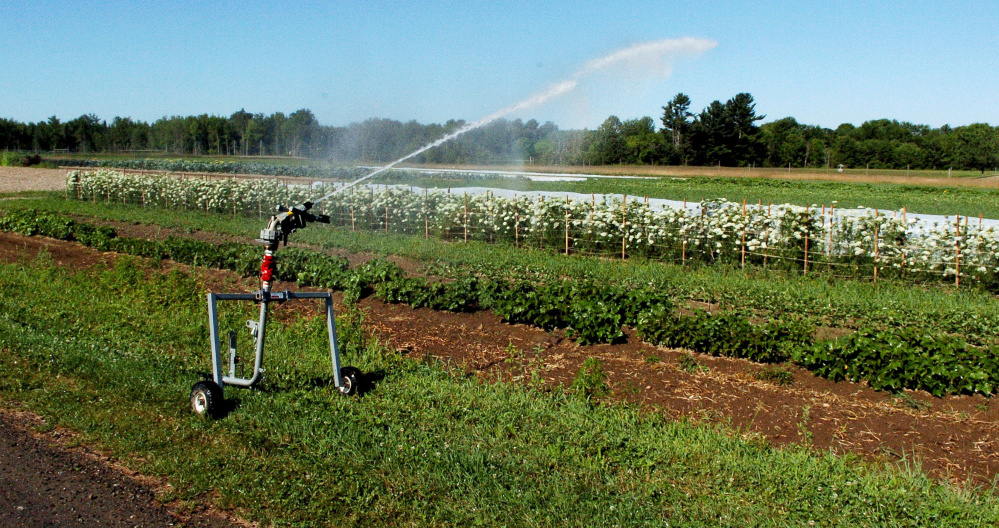
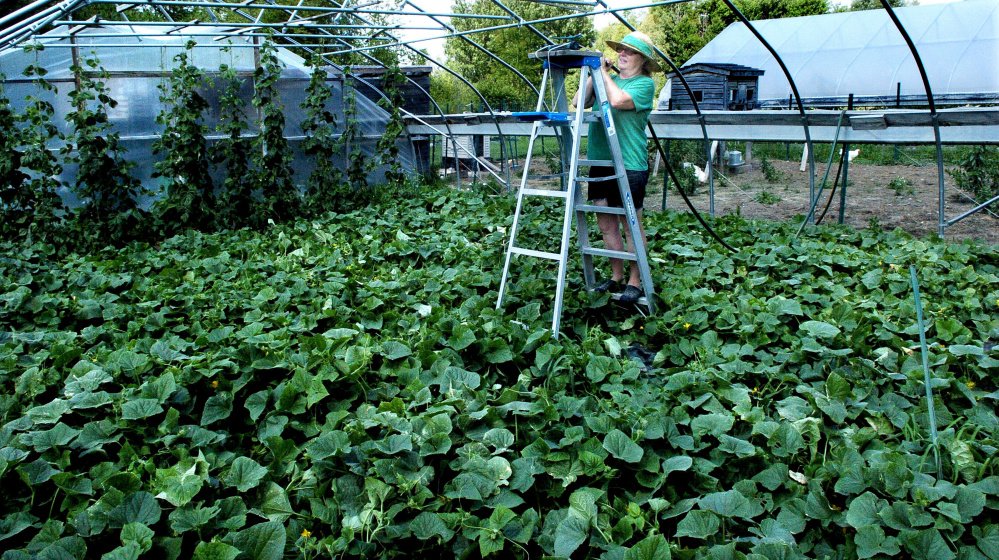
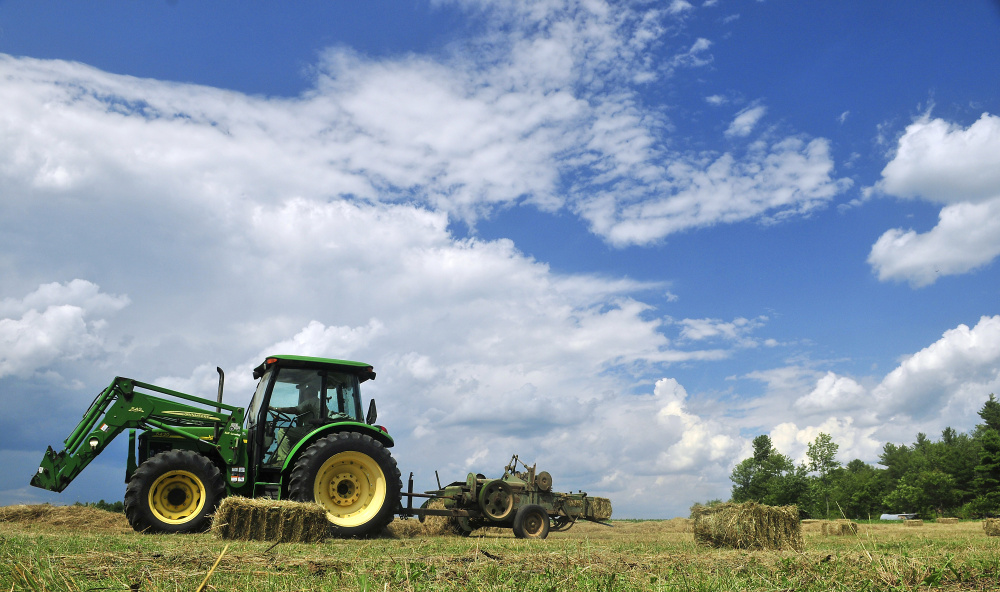
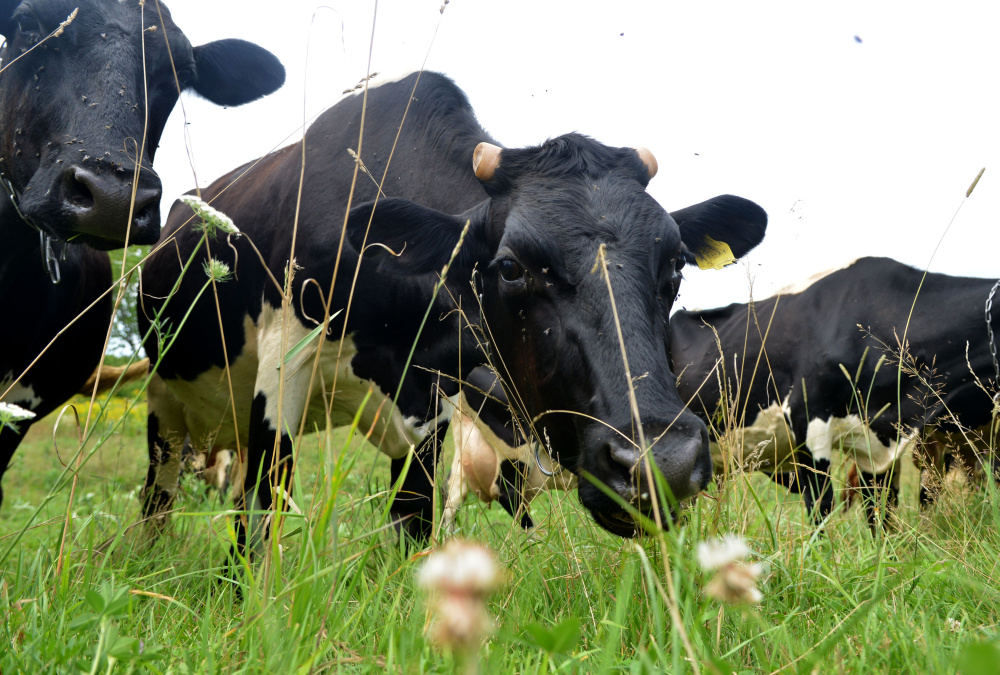
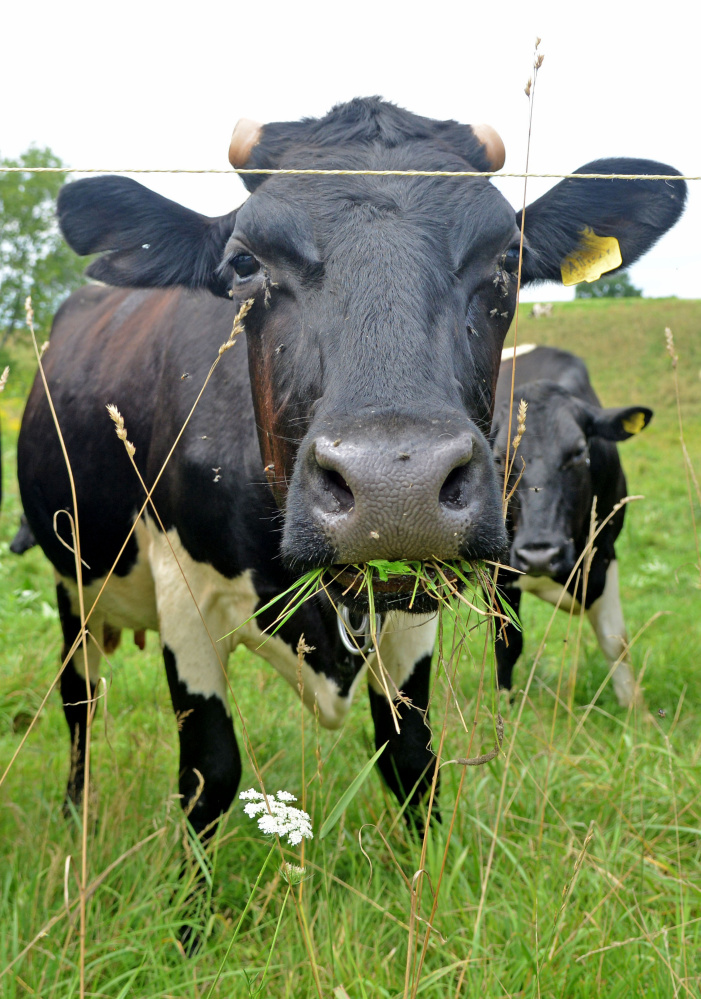
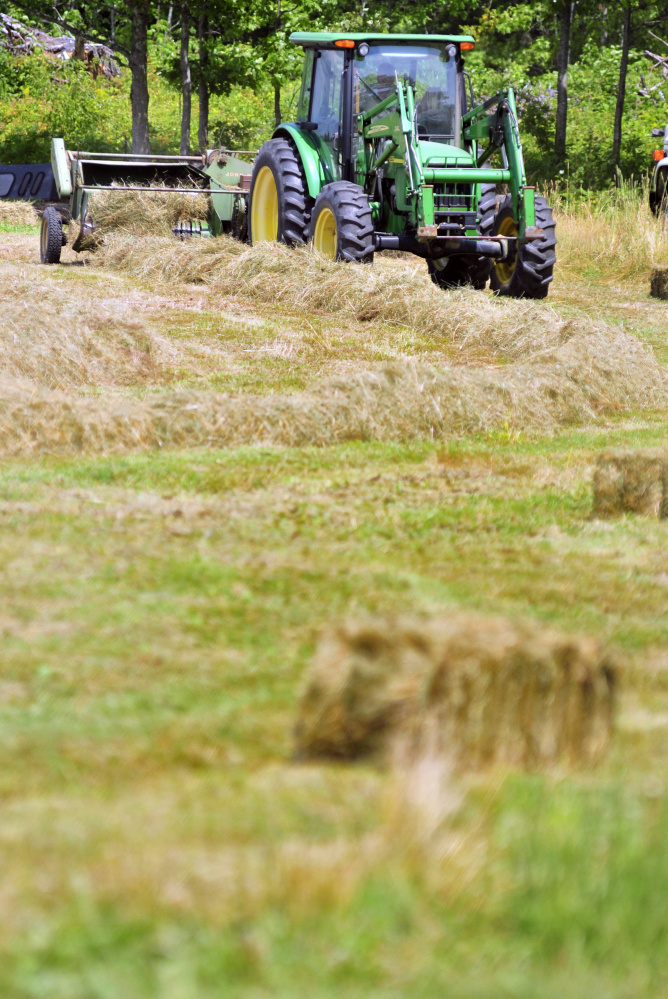
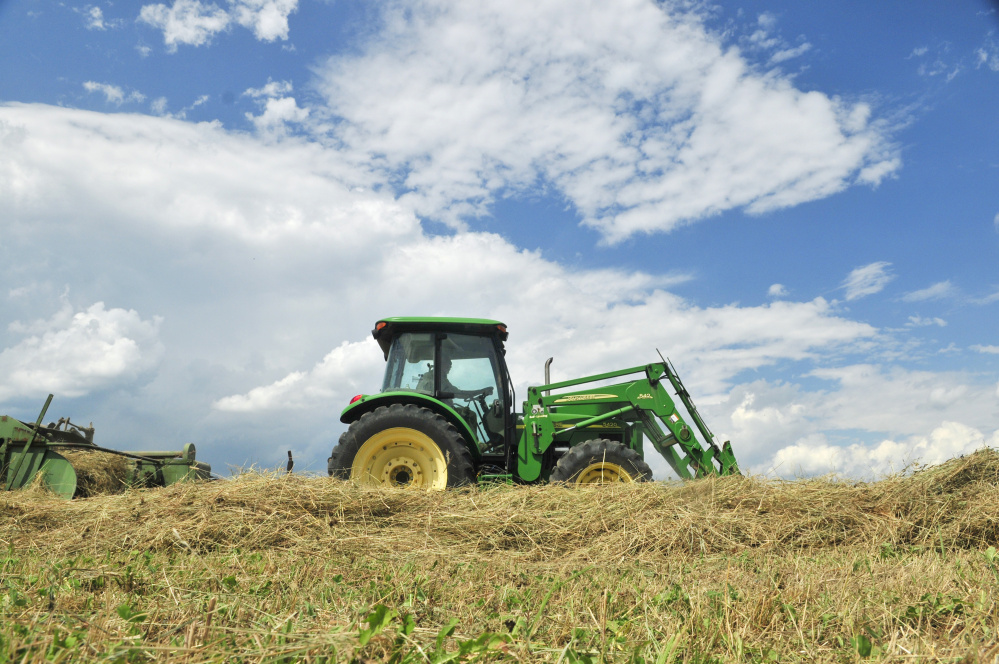
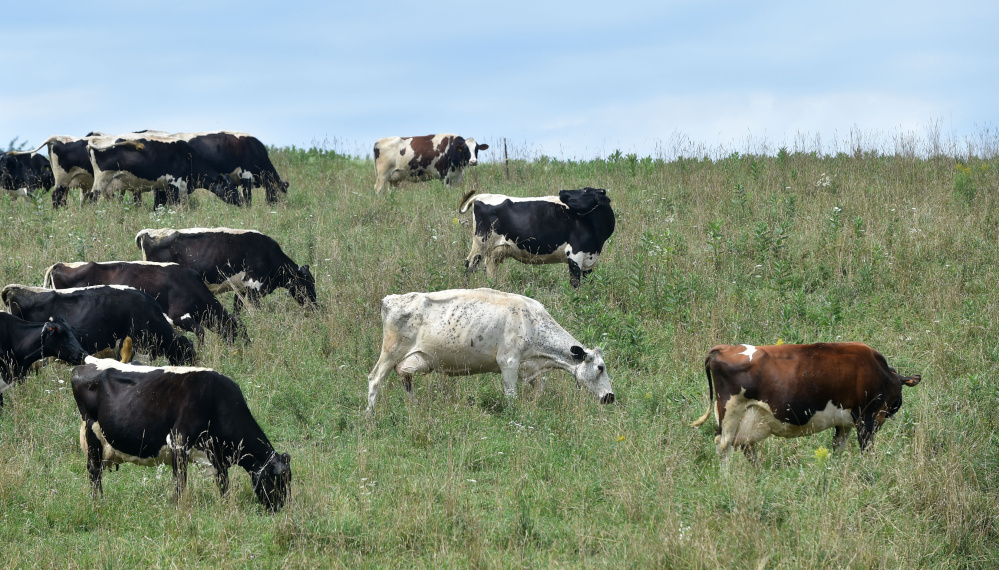



Success. Please wait for the page to reload. If the page does not reload within 5 seconds, please refresh the page.
Enter your email and password to access comments.
Hi, to comment on stories you must . This profile is in addition to your subscription and website login.
Already have a commenting profile? .
Invalid username/password.
Please check your email to confirm and complete your registration.
Only subscribers are eligible to post comments. Please subscribe or login first for digital access. Here’s why.
Use the form below to reset your password. When you've submitted your account email, we will send an email with a reset code.